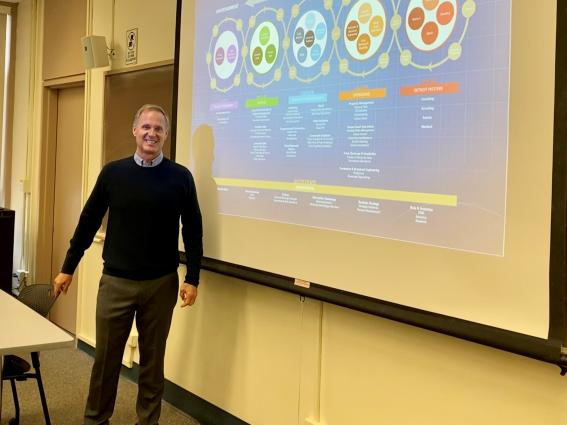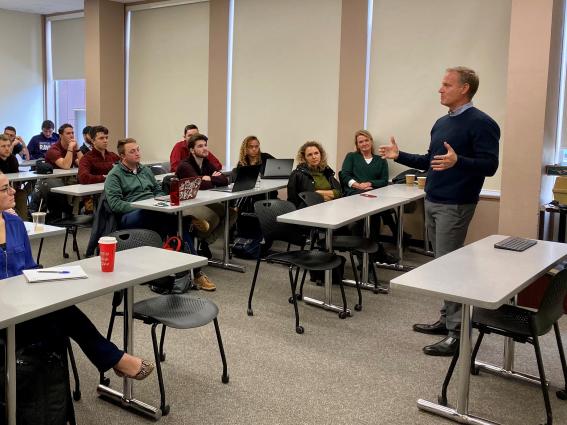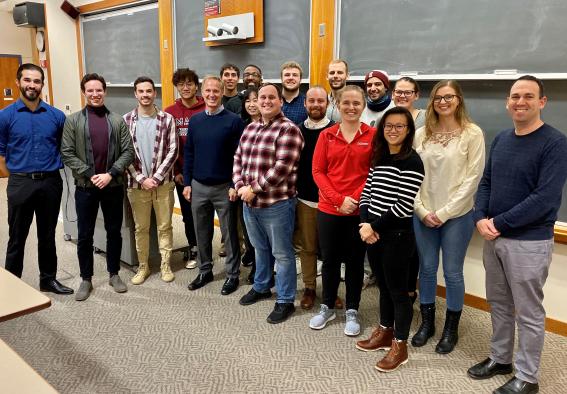Insights from a Sport Management Change Agent
December 4, 2019

In his hour-long presentation, Mannion offered pragmatic advice: The team’s brand, he said, should match the organization’s. Purpose should ultimately trump procedure. And organizations should place a premium on adaptable employees who are “fast on their feet.” Mannion also recommended financial transparency so that employees remember “it’s all business.” Sports teams, he said, tolerate too much complacency in both employees and players.
There’s a seductiveness that accompanies high-profile professional sports, he added in an interview after class. It’s easy to talk yourself into being “super busy” without strategic purpose. “There are so many points of contact. And there’s a rhythm in your head.” Fans and employees alike identify with their teams tribally, he continued. “People are prewired to join, brag, and belong,” he told the students. And he advised his audience that a team’s success and failure are cyclical. “Teams like the Patriots get so good,” he remarked. “But ultimately they get humbled.”
Creating and Sustaining Change

Baseball, Hockey, Basketball, Football
Mannion began his career with the Philadelphia Phillies, staying with the team for 15 years. To land that first job, he leveraged industry ties with Harold VanderZwaag and Bernie Mullen, both architects of Isenberg’s sport management program. “I thought I was going for an internship, but the Phillies said, You have a full-time job,” Dennis recalled. By the time he left the team for Ascent Sports in Denver, he had become the Phillies’ vice president of marketing and sales. As a senior vice president at Ascent, he oversaw business operations for the Colorado Avalanche and the Denver Nuggets.

In 1998, Isenberg’s sport management program honored him with its top alumni award, named after his former mentor, Harold VanderZwaag. “It has been fantastic,” Dennis remarked, “to chart the department’s progress from its promising foundation to its current national stature.”